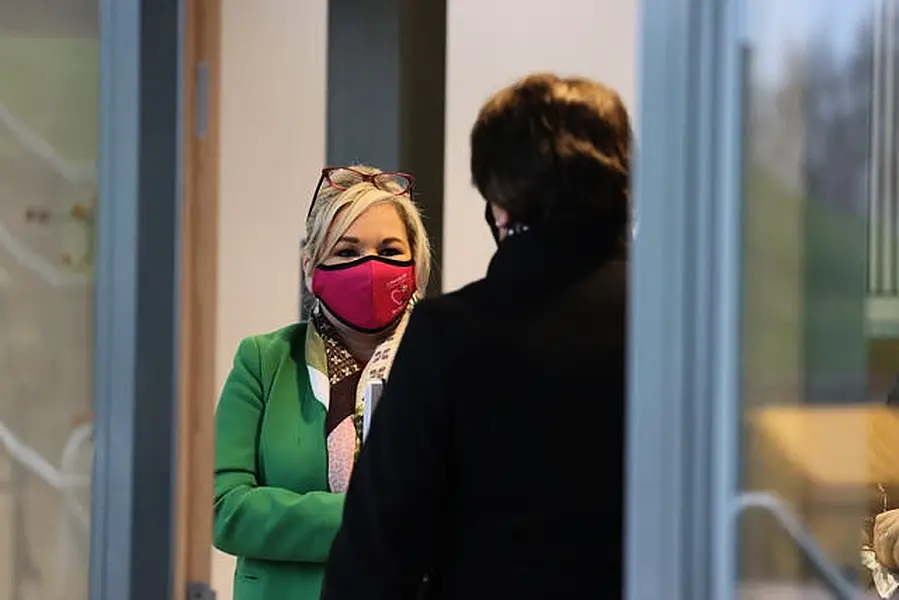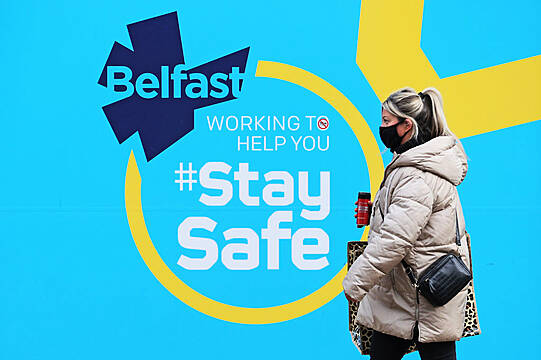The latest pandemic lockdown in Northern Ireland is likely to last beyond February 6th, the region’s chief medical officer has said.
The Stormont Executive introduced tough restrictions and a stay at home message amid the third wave of Covid-19 infections.
First minister Arlene Foster praised “many people doing the right thing” for a drop in the reproductive rate of the virus from 1.8 last week to around 1.1
She said the vaccination programme roll-out gives “light at the end of the tunnel,” but warned the “route back to normality” will take many months.
Ms Foster appeared at a joint press conference with deputy first minister Michelle O’Neill on Tuesday for the first time in more than a month.
Retail
They both expressed concern at reports of some employers not adhering to the “stay-at-home” order for staff and some retailers not following the “spirit” of the restrictions.
Mrs Foster expressed disappointment that some employers and business owners are requiring their staff to attend work.
Ms O’Neill added: “That’s not only unfair to the smaller retailers who are complying with the requirement to remain closed but it also goes against all the effort to stop the spread of coronavirus right across the community.”
The joint leaders are set to meet with representatives of the retail sector.
They were also set to speak with PSNI chief constable Simon Byrne on Tuesday evening around enforcement.
Tuesday saw a further 1,205 cases of Covid-19 reported as well as 22 deaths of people who tested positive for the virus.
Hospitals remain under pressure with 785 inpatients with Covid-19, 55 of whom are in intensive care and 38 on mechanical ventilation.

Dr Michael McBride said restrictions will be required for a “considerable number of months”.
“I’m not certain that we will be emerging from lockdown in February, I think that would be optimistic in the extreme, we have a long long way to go with this virus,” the chief medical officer said.
“We are in the most difficult and challenging time of the year where we know that respiratory viruses circulate more readily, I don’t think any of us can be anticipating a return to normality come February 6th.
“We will require restrictions to be in place yet until such times as we have more members of the population who are extremely vulnerable vaccinated.”
Chief scientific adviser Professor Ian Young said that while the R number has “fallen significantly”, the lag between case numbers and hospital admissions indicate pressures in healthcare settings will peak in the last weeks of January.
Prof Young said the fall in case numbers shows that staying at home works, adding “it must be sustained”.
Almost 100,000 vaccinations have been administered in the region to elderly care home residents, care home workers, those over 80 and health staff.

The next phase, which includes those aged over 75 and the extremely clinically vulnerable is set to begin in February.







